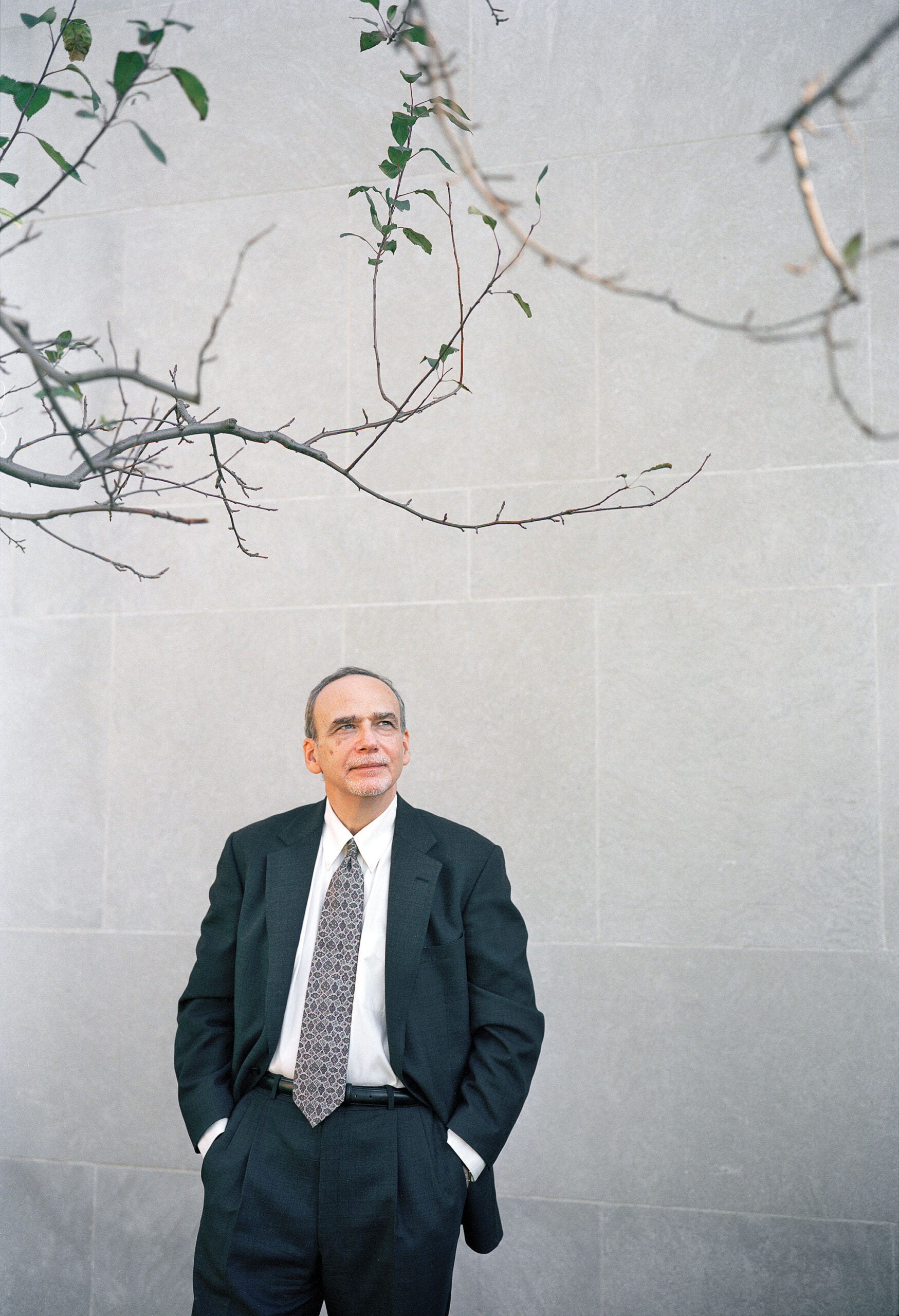Thirty-five years ago, after majoring in mathematics at Harvard and receiving a Ph.D. in the same subject from MIT, HLS Professor Gerald Neuman ’80 switched from the field of math to the field of law—from “truth to justice,” he said in an interview in his office in Griswold Hall. That decision has led to a career of teaching and writing on international human rights law and comparative constitutional law, and to his election last fall to the U.N.’s Human Rights Committee, a body of 18 independent experts who assess and critique countries’ records on civil and political rights. About that long-ago decision, Neuman says, “As a mathematician, I couldn’t describe to my friends what it was that I was doing, because even to understand what I was studying required extensive training in mathematics. Whereas in law, we have some complex concepts that we use sometimes, but we are fundamentally dealing with matters of human life that everyone can take an interest in.”
Three times a year, in three-week sessions in either Geneva or New York, the committee takes on matters of human life by examining the human rights records of several different countries; by elaborating on the meaning of provisions in the International Covenant on Civil and Political Rights, in the context of the current state of human rights and international law; and by reviewing cases where someone’s rights were allegedly violated—a defendant who has been tortured into confessing a crime, for instance, or a family trying to find justice for a “disappeared” person. The committee publishes its findings and reports them annually to the U.N. General Assembly. Neuman calls the work “amazingly interesting and extremely intense,” involving people from all over the world and with all kinds of work backgrounds—some are sitting judges, some have had diplomatic careers, some have worked in NGOs, and many, like Neuman, are academics. “We bring a variety of different skills to the work, which is important, because in everything we do, the question of how human rights can be made effective in the real world is a very important consideration,” he says.
Neuman’s nomination to the Human Rights Committee originated in the State Department, and was based on his long history of scholarship and advocacy on human rights issues, including amicus briefs filed for Guantánamo detainees in 2004 and 2008. Those briefs, Neuman explains, grew out of two separate strands of his work: an examination of the extraterritorial application of constitutional rights, including the rights of Haitian refugees housed at Guantánamo during the 1990s, and his study of the habeas corpus rights of foreign nationals in the immigration process.
One thing that Neuman has realized throughout his career, whether arguing that the rights of Guantánamo detainees are being violated or doing the work of the Human Rights Committee: In human rights work, the job is not just to improve practices around the world, but also to make sure that countries don’t backslide. “When states come under financial pressures, pressures of war or civil disorder or climate change, even in societies that once had a fairly high standard of compliance with human rights, [things] can unravel fairly easily. … It’s a constant struggle to keep the world as good as it was yesterday.”
